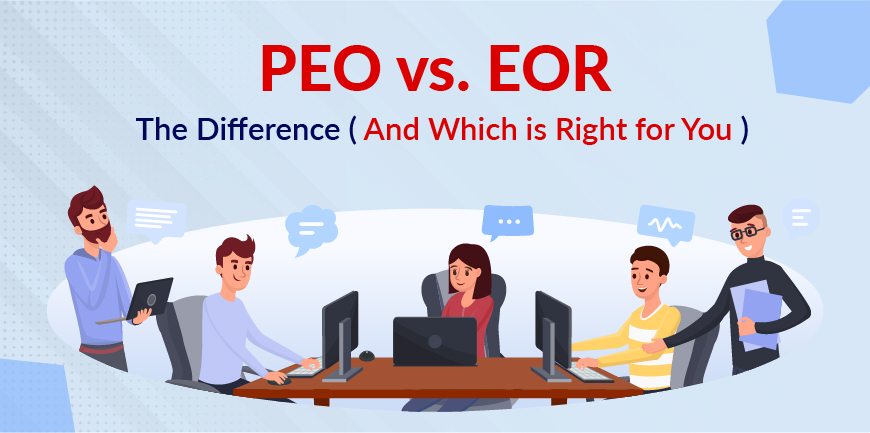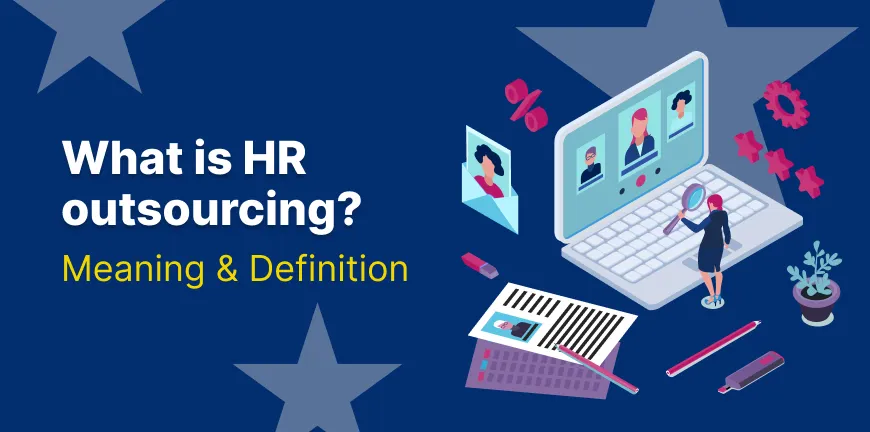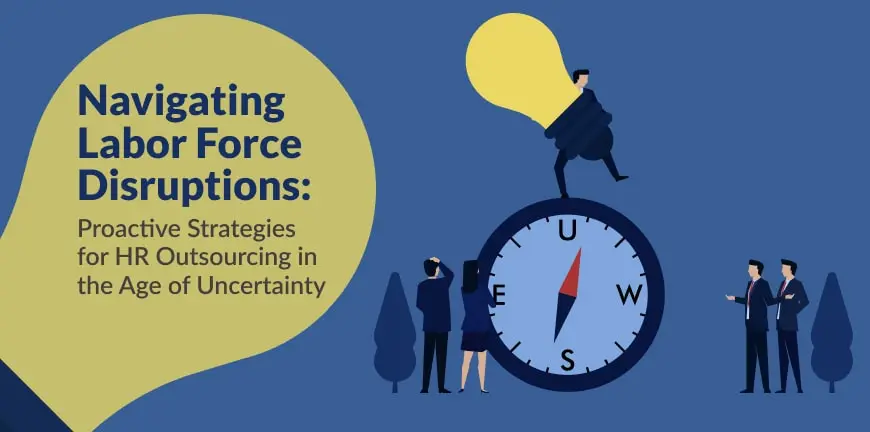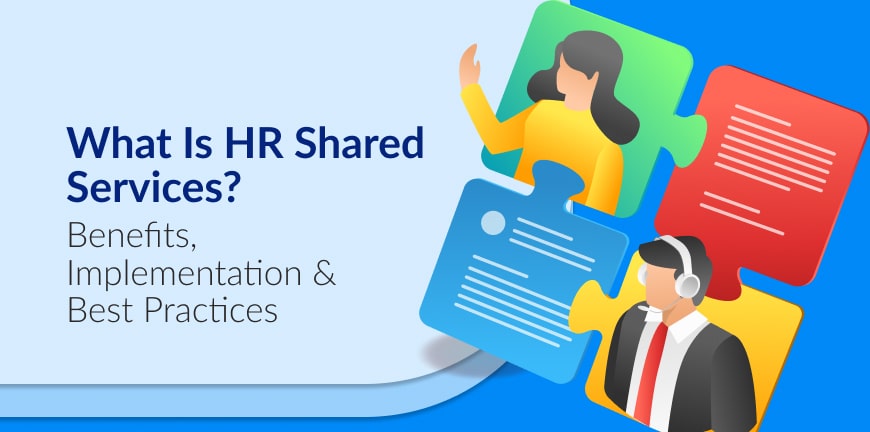
Challenges Faced by Japan-Based Companies for Recruiting in India
14/11/2025
Top 10 Executive Search Firms in India
14/11/2025- What is a PEO (Professional Employer Organization)?
- What is an EOR (Employer of Record)?
- PEO vs EOR: Key Differences
- What are the Pros and Cons of PEO
- What are the Pros and Cons of EOR
- When to Choose PEO vs EOR?
- When to choose PEO?
- When to choose EOR?
- How to Choose the Right Service for Your Business?
- Future Trends in PEO & EOR Services
- Frequently Asked Questions
As the business landscape is evolving, companies, whether startup or market leaders, are moving away from the conventional in-house HR and recruitment team model to an outsourcing model, as these offer more benefits and reduce costs.
PEO (Professional Employer Organization) and EOR (Employer of Record) are two such full-cycle HR outsourcing solutions that have gained a lot of traction over the years as go-to HR service providers, especially for small to medium-scale companies across India. However, making the right choice on whether to partner with POE or COE is a million-dollar question. Let’s ‘bell the cat’ by making a thorough comparison between PEO vs EOR to help companies make an informed choice.
What is a PEO (Professional Employer Organization)?
A Professional Employer Organization (PEO) is equivalent to a co-employer (HR service provider) that performs the role of an outsourced HR department, usually for small to medium-sized businesses. Companies that are looking to offload their HR-related tasks from hiring candidates to onboarding and compliance seek the partnership of PEOs. The activities undertaken by a POR include:
- Recruitment and onboarding of employees.
- End-to-end payroll management.
- Employee benefits administration.
- Tax filing and reporting.
- Regulatory compliance.
The main reason for companies to partner with a PEO is to outsource all their HR tasks so that they can focus on other business growth activities. When we look at PEO vs EOR comparison, although PEO relieves the companies of HR duties, the responsibility of day-to-day operations and legal liability still lies with the parent company, unlike EOR.
What is an EOR (Employer of Record)?
An EOR or Employer of Record is a third-party organisation that is hired by companies to take complete legal responsibility for recruitment on their behalf. When we look at the PEO vs EOR definition, both perform similar duties, but PEO is free of legal responsibilities, unlike EOR, which will be held accountable in case of legal disputes or non-compliance. Some of the tasks performed by an EOR include:
- Draft and maintain employment contracts.
- Pay management and tax withholdings.
- Onboarding and offboarding of employees.
- Statutory compliance.
- Provide ongoing support to align processes with local employment laws and regulations.
PEO vs EOR: Key Differences
Sometimes POE and EOR are used interchangeably, which is not correct. The difference between PEO and EOR are subtle but evident, although they perform similar activities from employee onboarding to compliance with labour laws. Here are the 5 key aspects that clearly highlight the differences between PEO vs EOR:
| Feature | PEO | EOR |
| Legal Responsibility Stakeholder | Co-employer, along with the client company | EOR is the legal employer of the worker |
| Control Over Employees | Parent employer manages day-to-day operations and hiring decisions | EOR manages employment legally, whereas the parent employer manages daily work |
| Use Case | Best for domestic employment where the company is registered | Ideal for global hiring without establishing a legal entity |
| Compliance Responsibility | Shared between PEO and the parent employer | EOR manages all legal, tax, and compliance responsibilities |
| Employee Contracts | Contracts are between the employee and the parent company | Contracts are between the employee and the EOR |
What are the Pros and Cons of PEO
Understanding PEO vs EOR pros and cons is essential before making a choice of whether to partner with a PEO or EOR for HR services.
Here are the pros and cons of a PEO:
Pros of PEO
1. Attract and Retain Top Talents
PEOs have specialised expertise in attracting and retaining skilled professionals, resulting in continued business growth and lower attrition rates.
2. Streamlining Payroll and Compliance
Small and medium businesses have limited resources, and hence, a PEO can help companies streamline payroll and compliance through its extensive expertise and experience.
3. Risk management and mitigation
PEOs have an expert team that identifies and mitigates risks associated with employment and compliance at early stages to provide enhanced employee experience and prevent legal hassles.
4. Saves time
PEO helps companies save significant time as they eliminate administrative and HR-intensive tasks, allowing the management to focus more on business improvement strategies and operational enhancements.
5. Cost-effectiveness
PEOs streamline end-to-end HR activities from onboarding to offboarding, ensuring there are cost savings as there will be lower attrition rates and compliance issues.
Cons of PEO
1. Lack of exclusivity
Typically, PEOs will be handling multiple clients simultaneously, hence delayed responses and missing deadlines are an imminent possibility.
2. Flexibility issues
The HR processes practised by PEOs may not align with certain business types, creating gaps and inefficiencies.
3. Shared liability
Although PEO takes care of the entire HR operations, any litigation or compliance issues must be handled by both the client and PEO, making it more complex for the client company to manage liabilities.
What are the Pros and Cons of EOR
The PEO vs EOR benefits exceed their limitations and can make life easier for small and medium-scale companies since they can focus more on business expansion rather than administration.
Here are the pros and cons of EOR:
Pros of EOR
1. Onboarding of top candidates
EOR has the expertise and process knowledge to attract and onboard top candidates to help with business continuity and increase brand reputation.
2. Full Responsibility
Unlike PEO, an EOR company takes full responsibility for employee management and will resolve conflicts and risks without involving its clients.
3. Time and cost savings
With EOR, clients can reduce their investment in expanding their in-house HR team since most activities related to hiring, payroll, tax compliance, etc., are taken care of by the EOR team.
Additionally, EOR saves time for the client, which can be directed towards improving other core activities for more profitability and brand value enhancement.
4. Tax filing and compliance
EOR functions as an independent company and takes care of tax filing and compliance related to the employees hired on behalf of their clients.
5. Enhanced employee satisfaction
As EOR takes full responsibility for employee management, employees will receive timely payments, and all their grievances will be handled effectively, leading to enhanced employee satisfaction and higher retention.
Cons of EOR
1. Clients may not have full control
As EOR acts as an HR company with full responsibility, clients may not play a significant role in decision-making related to hiring and other HR activities, leading to conflicts and dissatisfaction.
2. Data Security
Companies must implement robust data security systems to ensure there is no data breach from EOR, as they are an external agency. This can increase costs and reduce trust for the clients.
3. Lack of flexibility
Sometimes the EO’s expertise and hiring mechanism may not be suitable client company’s business requirements. This can lead to miscommunication and less desirable business outcomes.
When to Choose PEO vs EOR?
A thorough PEO vs EOR comparison is vital for companies to make a clear choice between the two for outsourcing HR activities.
When to choose PEO?
A PEO is ideal if:
- You are legally permitted to operate in a country and need to outsource HR activities to reduce the workload and hire top talent.
- You want to build a large workforce for the long term.
- You want to be a part of the final hiring decision to choose talents that fit your company’s work culture and ethics.
- You need expert guidance to navigate through complex local employment laws and regulations.
- You are looking for HR solutions that are within budget and offer a faster hiring advantage without compromising on the quality of hire.
When to choose EOR?
An EOR is ideal if:
- You want to capture a new market in a different location, but don’t want to be legally liable.
- You want to hire an entire team for a short-term project.
- You don’t want to take any responsibility for compliance related to HR operations.
- You want to hire a remote workforce across different geographical locations.
- You want to hire employees quickly before setting up a legal entity.
How to Choose the Right Service for Your Business?
Choosing between PEO vs EOR is a “catch-22 situation” and can result in unfavourable outcomes if the decision is taken without considering internal factors. Here are some important considerations that can drive the decision whether to go for a PEO or an EOR as an HR services partner.
1. Domestic vs. International Hiring
If you are hiring for domestic, then PEO is better, and for international hiring, EOR is better since there is no need for establishing a legal entity.
2. Seeking a Legal Presence
If you are trying to establish a legal presence in a particular business location, PEO is a better choice since EOR manages HR operations independently without any legal requirements on the part of the parent company.
3. Speed of Hiring
Typically, EOR facilitates faster hiring than PEO, especially for new markets.
4. Desired level of control
If you wish for more control over hiring decisions, then go for PEO since EOR has legal holding to make independent hiring decisions.
5. Scalability
If you are looking for a larger workforce and scalable HR solutions, PEO is a better choice, as the efforts required for scaling EOR are much higher.
If you are looking for end-to-end PEO services, consider reaching out to ALP Consulting for the best outcomes.
Future Trends in PEO & EOR Services
Future Trends of PEO Services
- Integration of technologies such as AI and data analytics is shaping the decision-making for companies that offer PEO services, resulting in better hiring outcomes for the clients.
- As compliance regulations are becoming more stringent, more companies are seeking PEO services to reduce their administrative burdens and achieve better compliance outcomes.
- PEOs are now considering DEI (Diversity, Equity, and Inclusion) initiatives to make hiring decisions.
Future trends of EOR services
- EOR services are gaining more popularity over time and may reach a market growth from $3.4 billion in 2025 to 10 billion by 2028 if the trend continues.
- As remote and gig work continues to be an integral part of workforce management, the demand for EOR providers will also increase significantly by 2030 since they can operate independently for clients who don’t have legal holdings in a particular country of business.
- Most EOR service providers are implementing blockchain technology to improve security and transparency.
Frequently Asked Questions
1. What is the main difference between PEO and EOR?
The main difference between PEO and EOR is that PEO acts as a co-employer with shared legal liability, whereas EORs work as an independent legal employer and take responsibility for managing all legal liabilities associated with HR compliance.
2. Is an EOR more expensive than a PEO?
Yes, EOR is more expensive than a PEO since it must take legal responsibility for resolving employment disputes, but in the long run can save money and bring more benefits than a PEO.
3. Can a PEO hire employees internationally?
Yes, PEOs can hire employees internationally if they have a global presence and expertise in hiring and managing international employees.
4. Which is better for startups: PEO or EOR?
For startups, EOR seems to be a better choice since they can operate independently and manage legal liabilities without involving their client company.
5. Can I switch from a PEO to an EOR?
Yes, a company can switch from a PEO to an EOR based on business needs and legal requirements in a particular business location.
6. Are PEOs and EORs the same as staffing agencies?
No, PEOs and EORs are different from staffing agencies as the latter only takes care of the recruitment of employees, whereas PEOs and EORs take complete responsibilities of HR operations such as hiring, onboarding, payroll management, regulatory compliance, offboarding, etc.
7. How do taxes work with PEOs and EORs?
PEOs manage tax withholding and can file tax returns, but the client company must share responsibility and ensure tax filing is done within deadlines. On the other hand, EOR is a legal employer and must ensure tax withholdings and filing are done as per the regulatory requirements and take full accountability in case of violations.
Contact Us For Business Enquiry

Rajkumar Shanmugam
Rajkumar Shanmugam is the Head of HR at ALP Consulting, bringing over 19 years of comprehensive HR leadership experience across India and international markets. His expertise spans talent acquisition, employee relations, performance management, compliance, and HR transformation. Rajkumar has a proven track record of driving people-centric initiatives, enhancing workplace culture, and aligning HR strategy with business goals. With extensive experience in US staffing operations and global mobility, he continues to lead organizational excellence through innovation and employee engagement.




